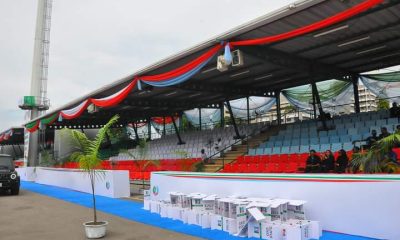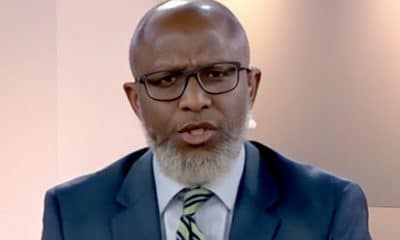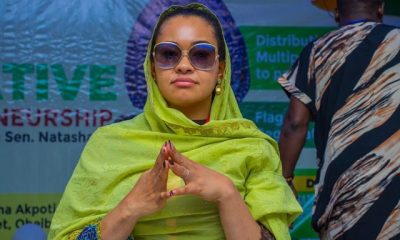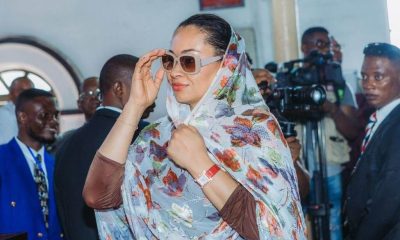Nigeria News
Reactions Trail Telcos Commitment To E-Transmission Of Election Results, APC Says It Has No Issues With INEC Innovation
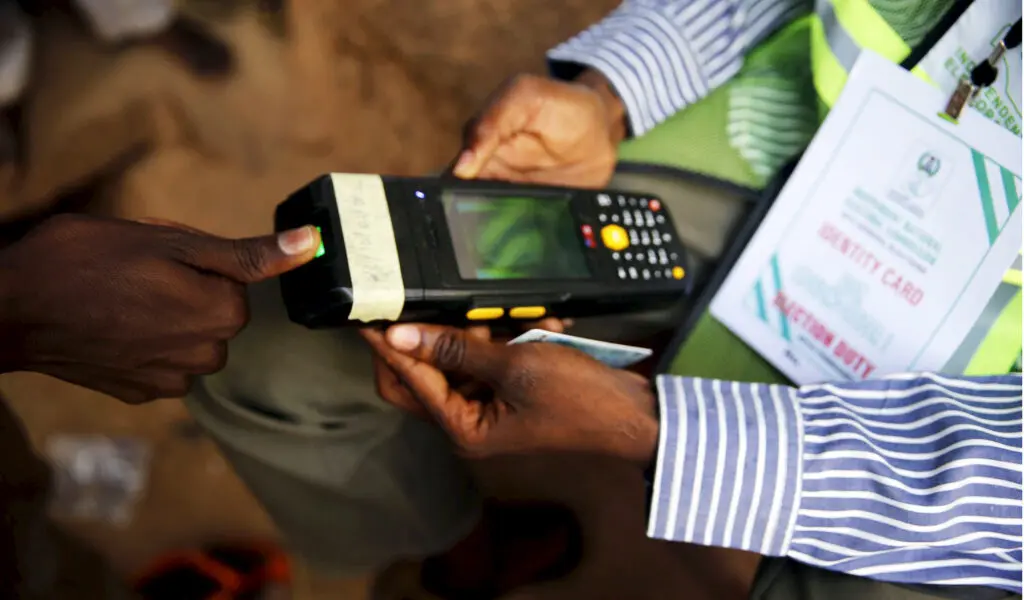
Reactions have trailed the commitment of telecommunication companies in the country to transmit the results of the 2023 general election electronically.
Naija News understands that the Executive Director of Yiaga Africa, Samson Itodo, expressed happiness about the fact that telcos in the country have shown readiness for the electronic transmission of the 2023 general election results.
Itodo, who described the development as a good one and a step in the right direction said he had always believed that the nation has the network coverage to handle electronic transmission of results, and that the spots without network coverage are statistically insignificant.
His commendation follows the declaration by the Association of Telecommunications Companies of Nigeria (ATCON) that telcos in the country are capable of transmitting election results electronically.
Naija News earlier reported that the Chief Operating Officer (COO) of the association, Ajibola Olude told Punch that contrary to the fears from some quarters, the nation’s telecommunication infrastructure had matured to the level it could transmit election results in 2023.
Olude had pointed out that “We are ready for electronic transmission of results. Our network has matured to the level that it can be used for result transmission. As regards the access gap, you can see that the NCC has been pursuing rural telephony vigorously.
“We have the technology, and our network is mature enough to be used for poll results transmission. Areas that do not have the Internet can use SMS technology to send results in real-time to probably the capital of the state to update the result. I don’t think there will be a problem using a telecommunication network to transmit election results.”
Reacting to the development, the Yiaga Africa boss submitted that “This new posture adopted by the telcos is a welcome development. I have always held the view that Nigeria has the infrastructure required to transmit results electronically. The blind spots without network coverage are statistically insignificant compared to areas with network coverage.
“The guidelines for the election provide mechanisms for managing results transmission in areas without network coverage, and the guidelines were implemented in those elections without hiccups.
“If a polling unit has no network coverage the presiding officers can leave the PU and search for a location where there is network coverage. It’s consistent with the practice in other parts of the world.
“We should encourage citizens, party agents and security agents to accompany the presiding officer to those locations to ensure only accurate and authentic result sheets are uploaded.”
Also in its reaction, the Publicity Director of the ruling All Progressive Counsel (APC), Bala Ibrahim said the party doesn’t have any intention to undermine INEC and other relevant stakeholders in the fulfillment of their duties.
Naija News gathered that Ibrahim said the party doesn’t have any problem with the deployment of the BVAS technology and retransmission of results once the issue of epileptic power supply and telecommunications challenges are taken care of.
It would be recalled that last week, the APC National Chairman, Abdullahi Adamu, had expressed doubts over INEC’s capacity to deliver a credible election using the BVAS and the Results Viewing Portal, otherwise known as the electronic transmission of election results.
Adamu, after a lot of criticism however cleared the air saying even though it had reservations about the innovation, it didn’t suggest for it not to be deployed.
The APC national chairman had said in a statement by the APC spokesman, Felix Morka that “At a meeting with the Commonwealth pre-election delegation, yesterday, Wednesday, November 23, 2022, in response to a question regarding the country’s preparations for next year’s election, the national chairman noted that while preparations were in top gear, he tasked INEC to take effective steps to bridge any gaps that may be created by electricity and telecommunications network challenges in certain outlying voting districts in the country to ensure a smooth and successful deployment of BVAS and other technologies to ensure free and transparent elections.”
The party’s Publicity Director further mentioned that the APC is not fearful about the deployment of the technology, the party simply desired the right thing to be done.
Ibrahim submitted that “The ruling party is willing and determined to work with whatever technology that will be deployed as long as there is assurance that it is going to be 100 per cent okay. Now that INEC has confirmed that it will be 100 per cent okay, so be it. The APC has no objection.
‘’After all, it is the initiative of the ruling party that all these electoral reforms are coming into play.
“‘To be forewarned is to be forearmed. The national chairman only raised some concerns with the hope that the right thing will be done.
“And now that there are attempts to do the right thing, we have no doubt they will do it. After all, we have confidence that INEC is capable of conducting a free and fair election. We just hope that the end will justify the means.
‘’All the party is saying is that justice should not only be done but be seen to be done. The chairman’s concern was raised based on what happened in the past where because of poor electricity, the batteries that were used were said not to be charged.
‘’That became a challenge. In order not to have a repeat of that situation, they should make sure that electricity is available and the network is stable.’’
Giving her take the Director of the Electoral Hub, Princess Hamman-Obels, said the BVAS and IReV (retransmission or results) innovations have added value to the electoral process.
She noted that the ‘’BVAS and IReV are amongst the latest additions in the process. These additions have been here for over a year, so how come suddenly some persons are questioning their efficacy? IRev came into being in the 2020 Edo governorship election. BVAS came into being in the Isoko North bye-election of April 2021.
“We are now in November 2022, two months to the main election, meaning these innovations have been in existence for over a year. Only persons vested in electoral malpractices will be against these innovations.
“They are good for the process as they increase the integrity of the process through expanded participation, inclusion, transparency, accountability and access to information. For instance, with the IReV, Nigerians anywhere in the world can monitor election results and easily verify results.
‘’BVAS cuts out padding of votes, it ensures one person one vote. It also makes it easy to checkmate over-voting etc. Shouldn’t we be progressing? Why are some persons bent on pulling us backwards?”

